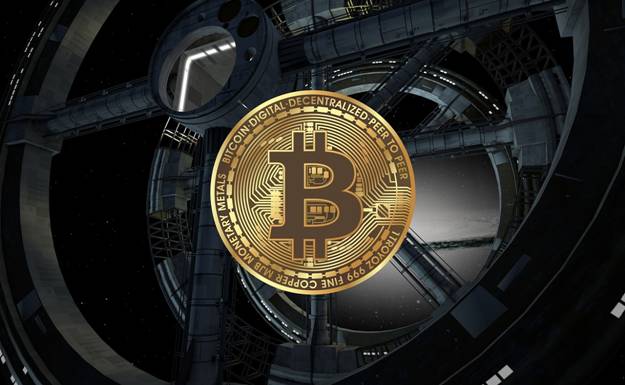
Bitcoin and Bitcoin Cash don’t only have similar names. Their origins are similar since they both come from the initial BTC blockchain. The community faced some technical and philosophical disagreements. As a result, some developers decided to create a hard fork of the chain, which is how we got Bitcoin Cash in 2017.
If we fast forward eight years, we see that comparing these two assets today is highly relevant. Before you buy Bitcoin with a credit card, you should see if BCH better fits your portfolio. This guide should help you figure out all the details about the two currencies and pick your preferred investment.
1. Purpose and Philosophy
Satoshi Nakamoto created Bitcoin to design an electronic payment method that would act as a borderless digital cash system. As years passed, BTC refocused a little bit. It became a crucial store of value, which is why many started calling the asset digital gold. Many investors started acquiring Bitcoin as a long-term investment, with the purpose of making a profit. Transactions are secure, but network fees can vary depending on the congestion.
Bitcoin Cash was designed to be an electronic payment method as well. You can use BCH for frequent daily payments since its primary philosophy is to enable excellent transaction speed while keeping the fees low.
2. Block Size and Scalability
Bitcoin uses 1MB blocks, which is a pretty small block size. The idea behind this was to ensure maximum decentralization and secure network integrity. Bitcoin maintains its reputation for providing excellent security when handling crypto transactions. A smaller block size makes access to participating in securing the network easier.
As for Bitcoin Cash, its block size is 32 MB. That’s 32x bigger than BTC since the developer’s idea was to secure a large number of transfers per block. This maximum block size is what enables the chain to confirm transfers at a higher rate while maintaining low charges. That’s particularly important during significant blockchain traffic. However, it makes participation in securing the chain more difficult. That’s why some users raise the question of centralization.
3. Transaction Fees
As we already discussed, transaction charges are significant between Bitcoin and Bitcoin Cash. The original BTC chain is prone to congestion. During these times, it might be necessary to pay more for network fees. The restricted block size is the reason why the network can’t handle the demand. It’s also why network charges can increase ten times or more during congestion.
Bitcoin Cash has larger blocks, and it’s a great choice for microtransactions. Regardless of the congestion, the network keeps fees low. The charges are often as little as a few cents per transfer. It’s important to understand potential conversions and fees. Bitcoin calculator on Paybis can be useful in determining the exact transaction value before executing it.
4. Adoption and Ecosystem Support
Bitcoin is the most popular and commonly used digital asset. It set new all-time record highs on multiple occasions this year. It’s no wonder that institutional investors hold this coin in high regard. The number of financial platforms accepting it is increasing each day. Many corporations and professional entities keep BTC as a store of value. You will even find Bitcoin ETFs that allow traditional investors access to this digital currency. That increases adoption and ensures Bitcoin keeps attracting more users.
As for Bitcoin Cash, the network remains more conservative and focused on grassroots. You will find BCH as a payment method in many digital stores. You can even use Bitcoin Cash at a limited number of physical stores, and it’s an option on some P2P payment platforms. BCH is among the currencies individuals use for remittance and sending money internationally. They find it convenient because it offers excellent cost efficiency and speed.
5. Network Security and Hashrate
Bitcoin has a considerably higher hashrate, which results in better network security. Thanks to this hashrate, BTC is more resistant to 51% cyberattacks. For this reason, many investors find this a secure asset to invest in, especially in the long run.
BCH doesn’t have a large hashrate, but this has some positives. Among other things, Bitcoin Cash uses less energy than BTC. That means the network has a lower digital footprint. The downside is that the network is at a greater risk of digital threats. Although developers work hard to implement certain fixes and improve security measures, the fact is that the security is at a lower level than that of Bitcoin.
6. Developer Community and Upgrades
Bitcoin might be a large network, but it’s not that fast to upgrade. Update frequency is low, and the entire development is a bit conservative. Network changes aren’t frequent, but that’s understandable since you need to make careful decisions regarding updates to such a large blockchain. The positive side is that the blockchain remains very secure and stable.
We could describe Bitcoin Cash updates as more active. Developers launch new features at a faster rate, which affects functionality. CashTokens is one of the latest changes, and it is how BCH added features that allow the use of dApps and smart contracts.
7. Market Perception and Store of Value Status
It doesn’t take a crypto expert to realize that Bitcoin is the real gold of the digital industry. The network uses the halving process and limited supply to maintain its attractiveness as a long-term investment. Many investors even perceive BTC as optimal protection against fiat inflation.
Bitcoin Cash isn’t an asset that you would hold for a long time. Instead, it’s more transactional and serves for payments and microtransactions. However, it doesn’t have the same reputation as Bitcoin in the general financial industry.
Choose Between BTC and BCH in Today’s Market!
Bitcoin and Bitcoin Cash are both important players in the crypto industry. You can pick BTC if you prefer a long-term store of value. Bitcoin has better institutional support, while scarcity should keep having a positive effect on its overall value. Bitcoin Cash is more suitable as a payment method if you need to conduct frequent and low-fee transactions.
Understanding the market and all its specifics is important when modifying your portfolio. You can read about the crypto fundraising differences to learn more about how new currencies appear in the digital market. Following the latest industry changes can help you optimize your portfolio and make smart transfer decisions.





